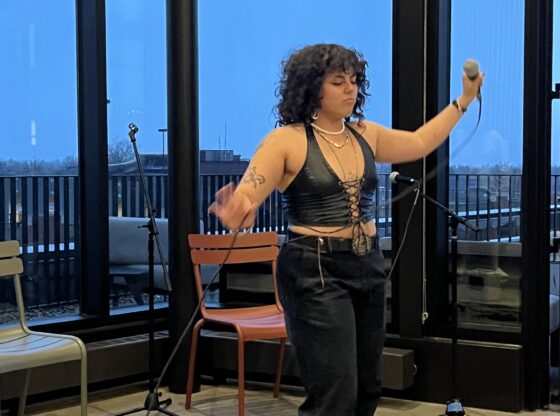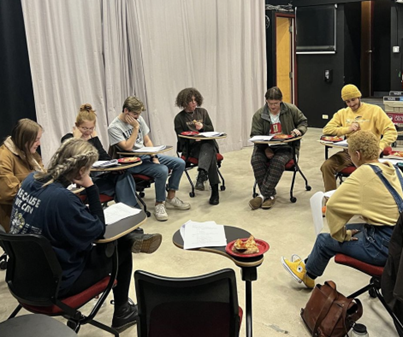Words tend to have up more meaning when they come from beyond the grave. Yet some writers, like Marina Keegan, should be valued for their writing, not as a way of eulogizing their existence, but recognizing what they accomplished when they were alive. In Keegan’s one and only book, “The Opposite of Loneliness: Essays and Stories,” tears will be shed, laughs will erupt from one’s chest and the last pages will be turned with melancholy. The book contains nine short stories and nine essays, each with their own voice and message, each with their own identifiable situations, especially for collegians.
All of the stories contained in this book were written during Keegan’s four years at Yale University, many of them fueled by her own collegiate worries and desires. She writes of her struggles with celiac disease, of the gradual but inevitable drifting away of couples and of the impending futility in the majority of the work force. Keegan’s essays and stories speak of real people and real events.
Sometimes, in essay or nonfiction work, there is the tinge of falsity or exaggeration, but every word of Keegan’s feels like it is straight out of the mouth of a 22-year-old woman who was wiser than her years. It will remain a tragedy in the literary community that mere days after her graduation from Yale University, Keegan died in a car accident.
“The Opposite of Loneliness” opens with an introduction that explains Keegan’s personality, her vivacity and her death. Each word following the introduction is tinged with loss, making it immediately more striking to the reader. Inane phrases like “I’m still struggling with my own desire to be a writer, my children probably won’t have the same opportunities I had growing up” hit home. Not many college students take the time to wonder if they will in fact make it to middle age; most college students take it for granted. Keegan’s stolen potential is a reminder of the frailty of each human life.
The book’s first piece is her most well-known, “The Opposite of Loneliness,” which was published online before her graduation. In the same vein of writing as Fun’s “We are Young,” Keegan speaks to her fellow soon-to-be graduates: Graduation does not place its 22-year-olds in a never-changing career. She reminds them of their college experiences that should never be forgotten, the long nights, the unexpected adventures. Any college student can identify with the picture she paints with simple examples and analogies, a beautiful recognition of easily forgotten but amazing moments.
In contrast, her last essay of the book, “Song for the Special,” sings a different tune. Compiled of interview quotes from friends and other Yale grads, Keegan speculates on the large number of graduates who as freshmen proclaimed liberal arts major intentions but find themselves working in consulting and finance firms after graduation. What is it about college that drives so many students to give up on their dreams? Is there truly a slow, impending “death of literature” that will relegate all writers to unforgiving office jobs? These questions, and many more that Keegan discusses, are all similar to the sentiments of 2014 graduates.
Her book is rife with jokes and interesting situations, but the value comes out of their meaning, out of the feeling in the reader’s chest as a single sentence seems to apply directly to their own life. “The Opposite of Loneliness” is a book that will speak to any collegian; its sentiments on par and so full of truth that is sometimes difficult to recognize. So whether you are a first year seeking understanding of what the next four years will bring or a fourth year about to head off in the world, Keegan will undoubtedly be able to touch your heart.











